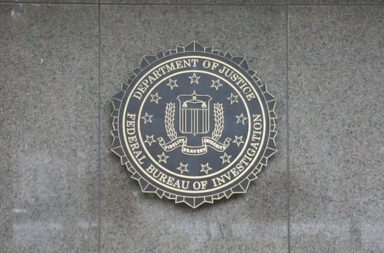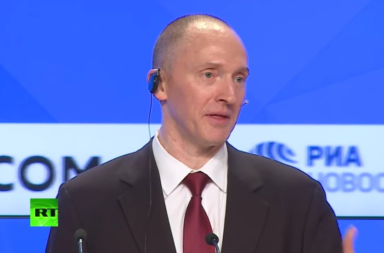What is the story that is making news all around?
Apple was recently ordered to unlock the phone of San Bernardino gunman. But to the misfortune of a software update released in September 2014, data such as text messages and photographs on Apple devices has been encrypted by default. Not even Apple is capable to access the data, a decision made by the firm, like several others in Silicon Valley. The FBI claims that Apple’s lack of cooperation is interrupting the investigation.
Details about the “Terrorist”
Syed Rizwan Farook had an iPhone 5c with an iOS 9 operating system, which is today held by the San Bernardino County Department of Public Health. He and his wife, Tashfeen Malik, (29) were killed in a shootout with the police after they attacked his co-workers. They killed 14 people in California City last December they were shot. They appeared to have been motivated by devotion to jihad, but the authorities have not connected them publicly to any extremists. FBI wants to examine Farook’s iPhone to conclude whether he and his wife, had planned the shooting directly with the Islamic State. The FBI demands that Apple should help them to by-pass the security software on Farook’s iPhone, which contains “crucial” information. It wishes the company to rework Farook’s iPhone so that investigators can make unrestricted attempts at the passcode without the risk of erasing the data. Tim Cook said the FBI’s court order to access the phone of San Bernardino killer Syed Farook is “dangerous”, “chilling” and “unprecedented”. In UK, the family of massacred Fusilier Lee Rigby said that Apple was “protecting a murderer’s privacy at the cost of public safety”. Farook is said to have used a four-digit passcode, meaning there are about 10,000 possible combinations. Hence the FBI wants to use what is known as a “brute force” attack where they literally try out every combination till the correct one is attained and the phone is unlocked.
What is the case?
The Justice Department asked Apple to customize software that will prevent the data on the phone from being deleted after 10 tries at the passcode. The software will enable agents to send electronic passcodes to the phone, rather than manually entering them in. It will also allow agents to automatically enter multiple passcodes to get around the encryption criteria. Apple said on its site, “We have great respect for the professionals at the FBI, and we believe their intentions are good. Up to this point, we have done everything that is both within our power and within the law to help them. But now the U.S. government has asked us for something we simply do not have, and something we consider too dangerous to create. They have asked us to build a backdoor to the iPhone.”
All of this proved futile when Apple refused to comply with the order. Opposing this order is not something to be taken lightly. But the followers of Apple have spoken at what they clearly see as an overreach by the U.S. government. There happens to be a lot of data available that does not require Apple’s assistance in unlocking the phone. The F.B.I. could request Verizon, the cellular carrier by which Farook’s phone was serviced. They could also request information from the developers who created the apps for Farook’s iPhone. In whose case the iPhone 5C an additional security is provided by the operating system which means the OS can be modified to remove it; nevertheless, only Apple can do it, because the phone will only accept an operating system signed using Apple’s master key. Apple claims that this software can give someone “the potential to unlock any iPhone in someone’s physical possession.” This solution though is not acceptable as it’s not just an issue of privacy, but it’s one of security. A master key cannot be guessed, but it can be embezzled; to think, no one would ever tell the difference if it is stolen. It would be a failure permitting those who bagged it to break into any device secured by the algorithm in question, without people relying on it realizing anything amiss.
“Tim is currently dealing with a very difficult situation and he knows the decision he has made has lots of ramifications, good or bad. But he wants to do the right thing”, said Don Logan the former chairman of Time Warner Cable who has been friends with Mr. Cook since he became chief executive of Apple. After the step down of Mr. Jobs due to ailing health, Mr. Cook started making Apple more open. He started publishing an annual report on suppliers and working conditions for a million factory workers. Privacy was always a priority for Mr. Cook. At a conference in 2010, he said that Apple “has always had a very different view of privacy than some of our colleagues in the Valley.” He explained iPhone’s feature that show its user and the phone and reassured the fears about abuse and stalking had compelled the corporation to let customers decide whether or not their apps could use their location records. Every data-extraction demand has been carefully vetted by Apple’s attorneys. Of those that were legitimate, it has in recent years required the officials to physically travel with the gadget to the company’s headquarters, where a trusted Apple engineer would work on the phones inside Faraday bags, which block wireless signals during the course of data extraction. “If you place any value on civil liberties, you don’t do what law enforcement is asking,” Mr. Cook said. “People have a basic right to privacy,” he added.
Eileen M. Decker, the US attorney in Los Angeles, where the investigation is being held, believed the effort to coerce Apple’s technical cooperation marked “another step — a potentially important step — in the process of learning everything we possibly can about the attack in San Bernardino.” DAs “have made a solemn commitment to the victims and their families that we will leave no stone unturned as we gather as much information and evidence as possible,” she added. Apple debated, “Law enforcement today has access to more data — data which they can use to prevent terrorist attacks solve crimes and help bring perpetrators to justice — than ever before in the history of our world.” “We believe it would be wrong to weaken security for hundreds of millions of law-abiding customers so that it will also be weaker for the very few who pose a threat” argued Apple.
On Wednesday Republican Donald Trump voiced his support claiming he agreed “100% with the courts”. White House press secretary Josh Earnest also commented that the FBI was “simply asking for something that would have an impact on this one device”. The FBI has the full support of the White House in this matter. Also the final decision ultimately does lie with the US Supreme Court.
Jan Koum, the creator of Whatsapp, now owned by Facebook, wrote “We must not allow this dangerous precedent to be set. Today our freedom and our liberty is at stake.”
The Information Technology Industry Council, a awareness raising group that represents Google, Facebook, Microsoft, Samsung, Blackberry and others, put out this statement: “Our fight against terrorism is actually strengthened by the security tools and technologies created by the technology sector, so we must tread carefully given our shared goals of improving security, instead of creating insecurity.” Google chief executive Sundar Pichai also landed a statement: “Forcing companies to enable hacking could compromise users’ privacy.”
Is there any other way around this?
According to Trail of Bits, a security research firm said that by using the identical technique that allows “jailbreaking” (the practice of forcibly removing restrictions and security measures within the iPhone’s software) you can force new software on the iPhone, wrote researcher Dan Guido. He said that Apple is capable of creating modified software that would work just on Farook’s iPhone. He held that by using security signatures it possesses, the customized version of iOS can ignore passcode entry delays, it will not erase the device after any number of incorrect attempts, and also it will allow the FBI to hook up an external device to expedite deducing the passcode. The infamous Edward Snowden, whose disclosures about US government spying, incited Apple’s stand on passcode-protected files. He said that the FBI was “creating a world where citizens rely on Apple to defend their rights, rather than the other way around”.
On the website, Apple quoted “For all devices running iOS 8 and later versions, Apple will not perform iOS data extractions in response to government search warrants because the files to be extracted are protected by an encryption key that is tied to the user’s passcode, which Apple does not possess.”
They want Apple to alter what is known as a SIF – System Information File. In this situation, the FBI is basically referring to the software that runs on the device. It wants Apple to create a new SIF to place on Farook’s iPhone that will permit it to carry out several functions normal iPhones do not allow like preventing the phone from erasing itself. If certain security settings are enabled, after 10 failed attempts at entering a passcode, an iPhone can erase all the personal data on the device. That’s what the FBI doesn’t want to happen on Farook’s phone. The iPhone also prevents you from entering a passcode for prolonged periods of time each time you fail. The FBI wants this obstacle removed. But a backdoor is a backdoor, and in this case the FBI is demanding Apple deliberately weaken its security. Possibly there is a slippery slope squabble here, and I can respect the idea that government intrusion on security must be fought at every step. All hope that this San Bernardino case doesn’t become a rallying cry for breaking into not only “an iPhone 5C” but, in the long run, all iPhones.
In latest news on the case, Anti-virus software creator John McAfee announced that he will break the encryption on the iPhone that belonged to Mr. Syed Farook. Mr. McAfee is said to have made an offer to the FBI to take on the task “free of charge”. It is claimed that the offer has made it to the table as Mr. McAfee continues to campaign as a US presidential candidate for the Libertarian Party. According to him the process will take only three weeks and he is keen to unlock the device because he does not want Apple to be forced to implement a “back door”. a back door as mentioned above ,is a method by which security services could access data on encrypted devices. Tim Cook has maintained that introducing a back door would make all iPhones vulnerable to hacking by criminals, hence has refused to comply with the court orders. “I would eat my shoe on the Neil Cavuto (TV) show if we could not break the encryption on the San Bernardino phone,” Mr. McAfee added.
Security expert Graham Cluley is said to be skeptical of McAfee’s statements. The iPhone is notoriously difficult to hack compared to other devices, he explained. He is doubtful of the use of “social engineering”- a process used by hackers to find out login IDs by fooling people into giving them away. McAfee is certain that this is the method to work out the pass-code of the locked iPhone. “Good luck to Mr. McAfee trying to socially engineer a corpse into revealing its pass-code.” said Mr. Cluley. The FBI is not interested anyway, they want to set an example that there shouldn’t be locks they can’t break,” he added.




